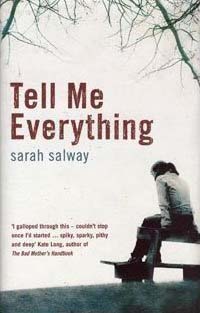I'm not sure that Ron Chernow's Alexander Hamilton (Penguin Books, 2004) the bestselling biography and basis for Lin-Manuel Miranda's Broadway musical phenom needs any more hype, but here it goes. Chernow's book is a monument to one of America's most personally complex and influential founding figures. It is lengthy not because Chernow, as is often the case in modern biographers, can't manage to make choices about which bits of his research to share -- a toenails-and-all approach -- but because he integrates his subject's story with necessary personal and historical context. One cannot understand either the sheer amount of Hamilton's contribution to modern America: its constitution, party system, how voters are represented, how the state and federal governments relate, the system of checks and balances - nor the weight of these contributions, without understanding his role in the Revolutionary war, his relationship to George Washington (and by extension, who our first general and president was), and the opposition Hamilton faced from Thomas Jefferson (and who he was), James Madison (ditto), John Adams (ditto), and Aaron Burr (ditto), and having an overview of his most influential work The Federalist Papers.
What is makes Alexander Hamilton a great biography for this time, perhaps even more than for the one in which it was written 12 years ago, is that it captures the quintessential American story as a function of personal identity. A poor, immigrant, possibly of mixed race, born out-of-wedlock -- everything that a large section of today's political establishment abhors -- comes to America, gets himself an education, and rises through the ranks by working his tail off to end up co-creating our Constitution, our governmental and electoral systems, single-handedly creating our Coast Guard, our first bank, and the basis of our entire modern economic system. If present-day governors of numerous American states would like to know how public higher education contributes to the good of industry, economy, and state and why it should be government's duty to generously fund it - I cannot think of a better argument than Hamilton's life story.
Chernow's story of Hamilton is timeless. The story of America, given its pitiless subjugation of the people native to its soil, has always been the story of immigrants - this includes some of our founding fathers. They needed support to get started in life. It is striking that the press supporting the political party in opposition to Hamilton also decried his foreign birth, his racial identity, and his illegitimacy. Plus ca change. Reading Alexander Hamilton is comforting in the context of the current election. It is a relief to read that the men who appear on our money and to whose homes we made trips in third grade, were ruthless shits to each other, baldly lied about each others' records, manipulated the press, and spread rumors about each others personal lives. With all the energy Jefferson spent vilifying Hamilton, it is surprising that he got anything else done.
In addition, Chernow's book is simply good story telling. He frames the 700-page volume with the story of Hamilton's widow, who outlives her beloved, short-lived husband by fifty years. This not only touchingly plucks at the heartstrings -- reminding us of Hamilton's humanity, how one person's life effects many others -- it also exemplifies biography as a narrative crafted of many accounts. Elizabeth Schuyler Hamilton reconstructed her husband's life through the veil of romance and grief. Newspaper accounts at the time jeered at Hamilton's rumored sympathy for the British and his personal infidelities. These are in turn unified by the point-of-view of the biographer in his own time. We add up only to what other people make of us.
Subscribe to:
Post Comments (Atom)

















No comments:
Post a Comment